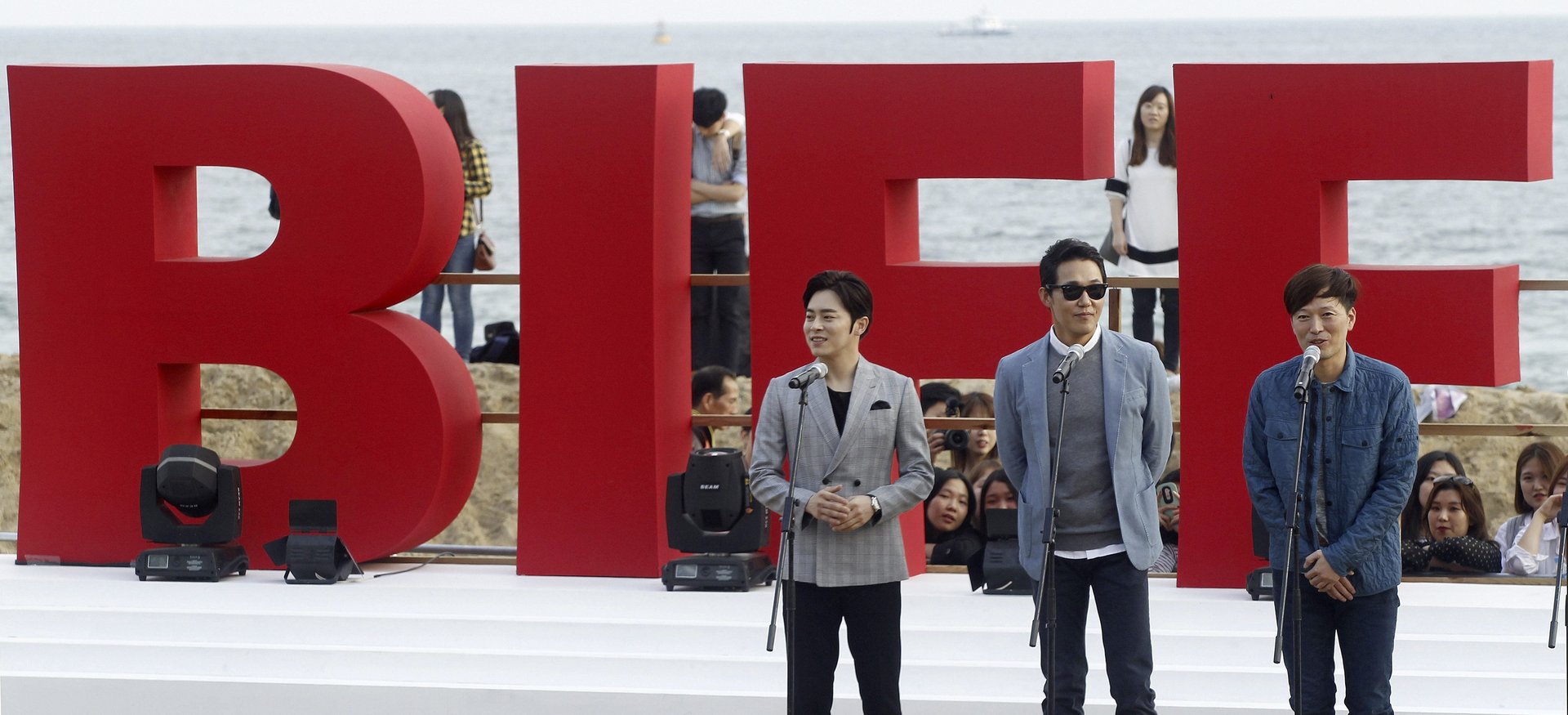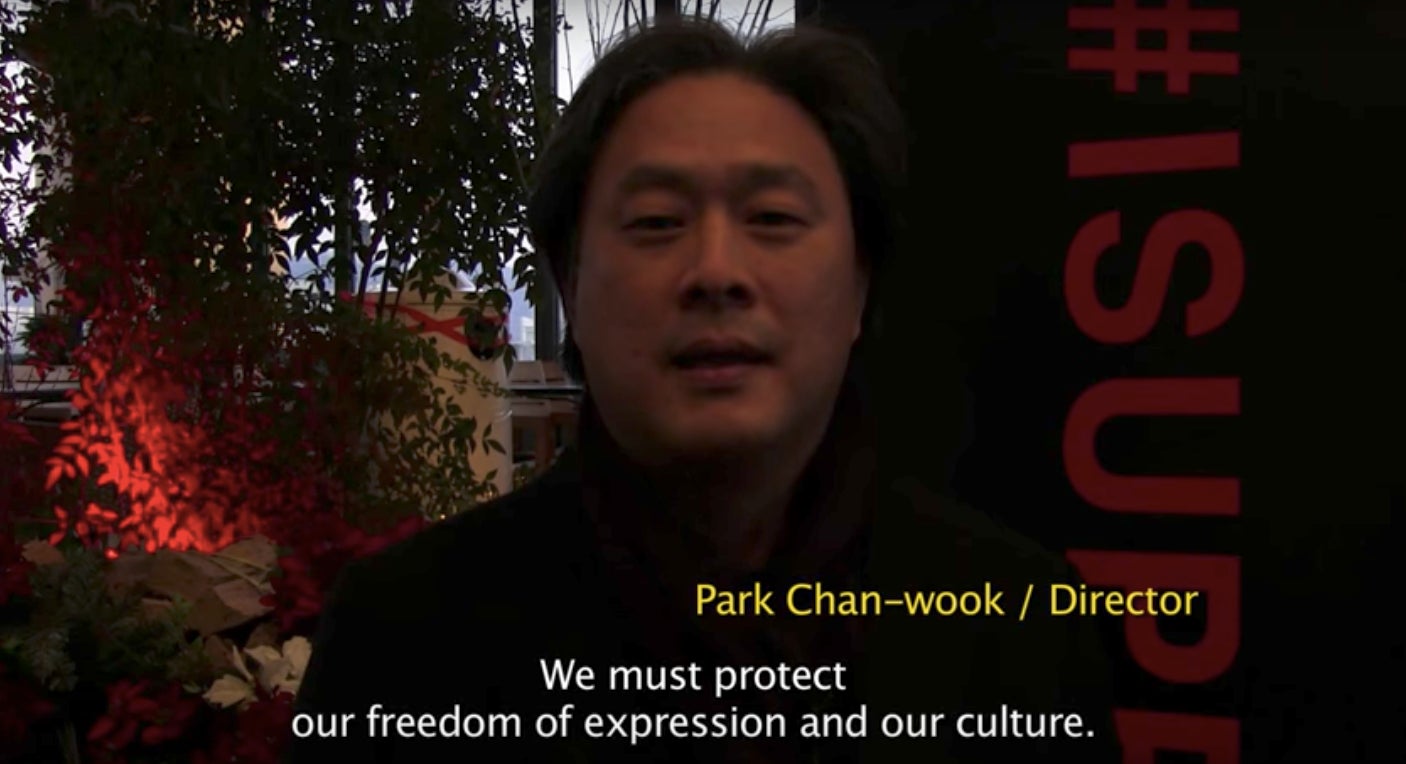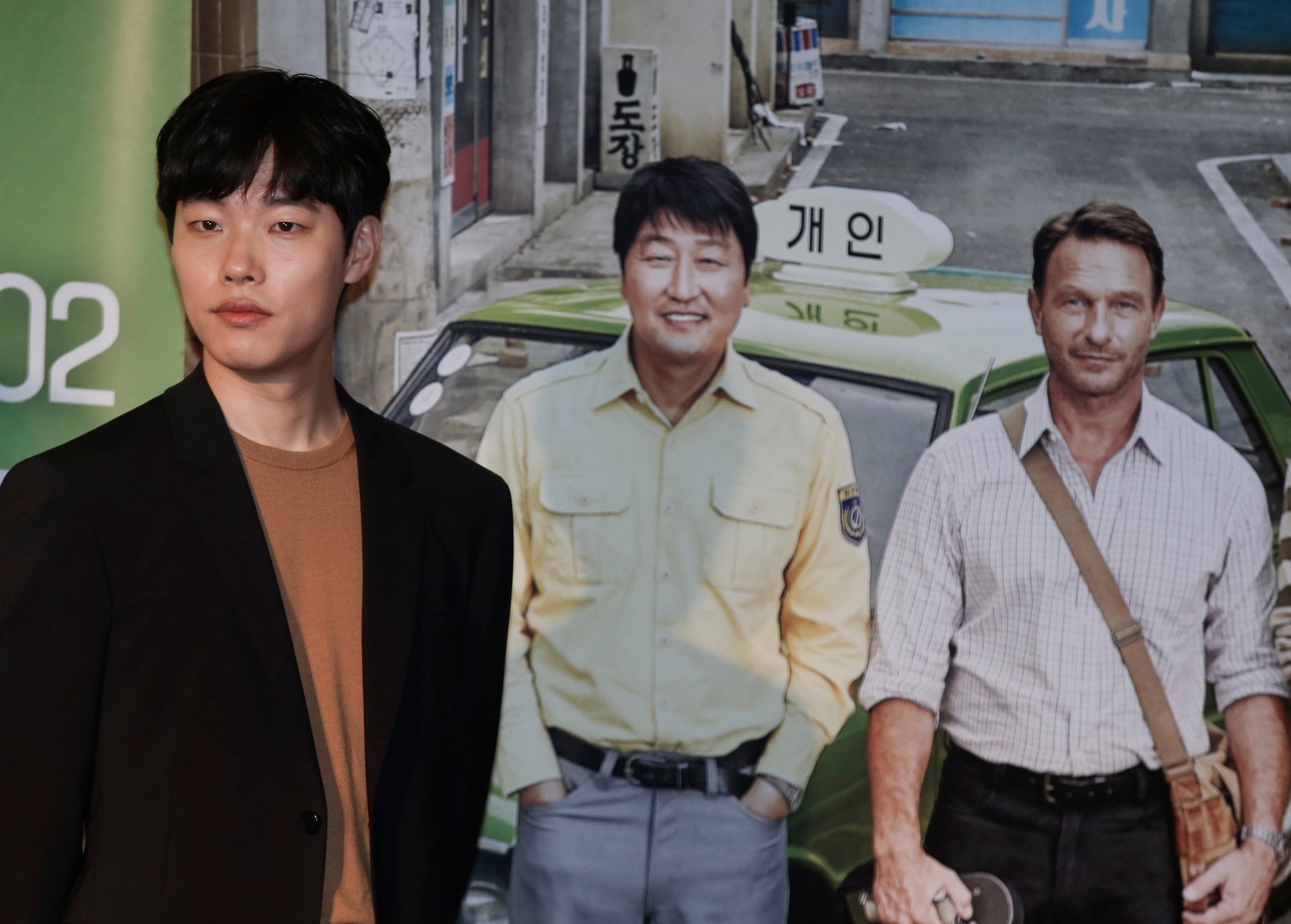South Korea’s Busan film festival is emerging from under a dark political cloud
Under president Park Geun-hye, thousands of people and organizations working in the arts in South Korea found themselves on a government blacklist over work that appeared critical of the conservative government. The targets of the government’s crackdown included some of the most revered names in the arts in the country, and one of Asia’s top film events, the Busan International Film Festival (BIFF).


Under president Park Geun-hye, thousands of people and organizations working in the arts in South Korea found themselves on a government blacklist over work that appeared critical of the conservative government. The targets of the government’s crackdown included some of the most revered names in the arts in the country, and one of Asia’s top film events, the Busan International Film Festival (BIFF).
With many artists cut off from vital public funding, and authorities discouraging the showing of their work, the film festival became embroiled in a battle over its independence that divided the country’s film-makers. The event’s executive director Kang Soo-youn has said the festival was one of the “biggest victims” (link in Korean) of the blacklist.
When BIFF opens Thursday (Oct. 12), however, it will be in a Korea that is very different to the one under president Park.
An invisible hand
The trouble for BIFF started in 2014 when the festival, held in the seaside city of Busan in Korea’s southeast, decided to air a documentary on the sinking of the Sewol ferry. The tragedy killed over 300 people that year, mostly teenage students. The film, titled in English The Truth Shall Not Sink With Sewol—the Korean name translates to Diving Bell—was critical of the government’s handling of the accident, which inflicted deep trauma on the Korean public. According to media reports, the film had difficulty finding official distributors in Korea, and Busan mayor and BIFF chairman Suh Byung-soo, a politician close to Park, tried to pull the film from the festival.
One of the consequences BIFF suffered was a major cut to its funding by the government’s film council by almost 50% ahead of what should have been its celebrated 20th edition. Then BIFF director Lee Yong-kwan was also charged with embezzlement and sentenced to a suspended jail sentence which was revised to a fine, which Lee appealed. The festival described the prosecution as “revenge” for the documentary screening. BIFF said in July it was “regrettable” (link in Korean) that Lee, one of the founders of the festival, was not acquitted, and called for the Busan mayor to apologize for the trouble he inflicted on BIFF in the last three years.
It was a sad trajectory of events for BIFF, which since 1996 has grown into Asia’s preeminent film event and is known for being a major testing ground for new directors from the region. Coming just eight years after Korea became a democracy, the development of the film festival also traces the explosion of interest in arts and culture (pdf) that followed decades of repressive military rule, which helped make Korean movies so popular in the rest of the world. The Korean government has also always been closely involved in film, as the Korean Film Council and the Korean culture ministry generously supported filmmakers during more progressive administrations.
“There was a lot of interference from the government’s film council, and there was an invisible hand working within the film industry, blackmailing producers who wanted to produce films that were against the government’s policy,” said Park Ki-yong, a filmmaker who now teaches at Dankook University in Korea. The government instead preferred patriotism-inducing movies about conflict with North Korea, such as Operation Chromite, set during the Korean War, and which president Park went to see.
Following the events that marred BIFF in 2014, Korean film industry groups called for a boycott of last year’s festival, with attendees describing a much more subdued mood than previous festivals. Many expressed their support for the festival online through the hashtag #ISUPPORTBIFF (link in Korean). Some wore stickers last year in support of the ousted festival head, Lee.

“It’s been a really unfortunate situation for the festival; before if you mentioned the festival people would think of passionate crowds and all the good things about it, whereas now the first thing people think about is all the controversy. It’s created a kind of image problem for the festival,” said Darcy Paquet, an expert in Korean film who has lived in the country for 20 years and who describes BIFF as “Sundance and Toronto combined.”
A powerful typhoon also destroyed some of the BIFF venues shortly before the film festival opened last year.
Revisiting Korea’s dark past
Things in Korea have changed a lot since last year’s BIFF.
President Park was impeached earlier this year amid an explosive influence-peddling and corruption scandal, and following a trial in May on corruption charges, to which she pleaded not guilty, is awaiting her verdict. Several officials, including a former culture minister, have been sentenced to prison on charges relating to the blacklist. Progressive president Moon Jae-in came to power pledging to reverse many of Park’s conservative policies, and has ordered a probe into the cultural blacklist, which the administration says may have even begun under Park’s predecessor Lee Myung-bak and could have included as many as 9,000 names (paywall).
One of the people on the blacklist was actor and politician Moon Seong-geun, who appeared in court as a witness into the investigation. Korea’s intelligence agency said that during Lee’s presidency, the agency’s psychological warfare team doctored a photo of Moon (no relation to the president) lying naked with an actress and distributed it online to defame him. Other famous names on the list include Han Kang, author of the Booker Prize-winning novel The Vegetarian, and Park Chan-wook, who directed cult thriller Oldboy.
The Moon government said that the alleged interference in BIFF is one of six major incidents related to the blacklist that it is investigating. It also said it would increase funding for the film industry, particularly independent films, to compensate for the previous administration’s policies. Nam Dong-chul, the programmer for Korean films at BIFF, told Quartz that the festival doesn’t expect to have similar problems again because the Moon administration has “stressed the autonomy of art and culture” and made many promises to safeguard artistic independence.

The success of A Taxi Driver, the highest-grossing film in Korea this year, is a testament to the rapid change in Korea’s political atmosphere since the end of Park’s administration. It tells the fictionalized story of (paywall) a taxi driver in the southern city of Gwangju in 1980, who, during a bloody uprising against Korea’s military dictatorship, helped a German reporter get footage capturing scenes of the bloody crackdown outside of the city and then the country.
Park Geun-hye’s father Park Chung-hee was a dictator who ruled Korea until his assassination in 1979; he is still loved by many older Koreans who look back fondly on a time when the country experienced rapid economic growth. Conservative groups paint the Gwangju protests as a leftist rebellion organized by people with sympathies to North Korea.
The release of the film also comes as Korea’s defense ministry said it is launching a special investigation into the Gwangju crackdown of 1980. Moon himself went to see A Taxi Driver.
“The (previous) ruling party couldn’t have stopped the film from being shown, but they would have pressured the distribution company to not promote it too much,”said Park Ki-yong, of Dankook University. “[They] would have tried in every way to interfere to make this film not successful.”
The Busan International Film Festival begins Thursday (Oct. 12) and runs through Oct. 21.